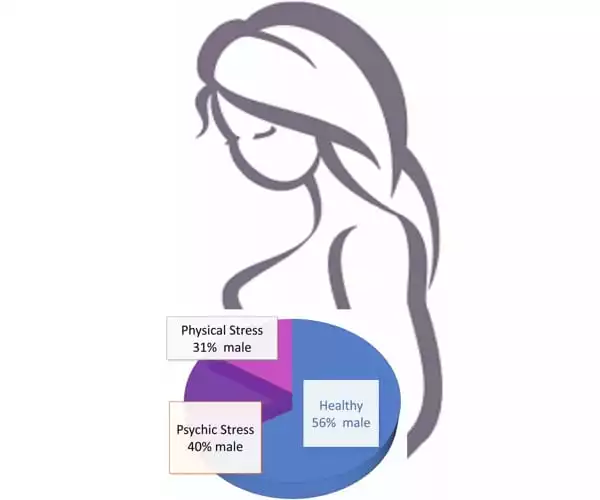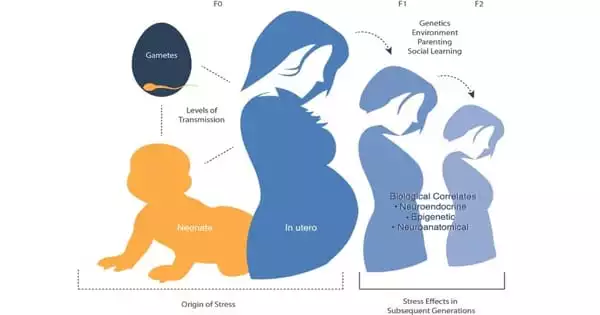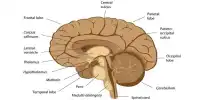Biologists have discovered that mother roundworms can transmit stress signals to their offspring. According to the biologists, a mother roundworm exposed to a stressor can even pass on the memory of that exposure to her grandchildren under certain conditions.
A mother’s reaction to stress can even have an impact on her grandchildren. Under certain conditions and through gene modifications, biologists at the University of Iowa discovered that roundworm mothers exposed to heat stress passed on the legacy of that stress exposure not only to their offspring but also to their offspring’s children.
The researchers, led by Veena Prahlad, associate professor in the Department of Biology and the Aging Mind and Brain Initiative, investigated how a mother roundworm reacts when she detects danger, such as a temperature change, which can be harmful or even fatal to the animal. In a study published last year, biologists discovered that when the mother roundworm detects danger, she releases serotonin. The serotonin travels from her central nervous system to her unfertilized eggs, where it is stored and then passed on to offspring after conception.
A mother’s response to stress can even influence her grandchildren. Biologists have found that mother roundworms can pass stress signals to future generations.
Veena Prahlad
Even in humans, examples of such genetic cascades abound. Pregnant women affected by famine in the Netherlands from 1944 to 1945, known as the Dutch Hunger Winter, gave birth to children who were influenced by that episode as adults, with higher rates of obesity, diabetes, and schizophrenia than the general population. The biologists wanted to know how the memory of stress exposure was stored in the egg cell in this study.
“Genes have ‘memories’ of previous environmental conditions, which affect their expression even after these conditions have changed,” Prahlad explains. “It is unclear how this ‘memory’ is established and how it persists beyond fertilization, embryogenesis, and after the embryo develops into adults.” This is because, during embryogenesis, most organisms typically reset any changes made to genes as a result of the genes’ previous activity.”

Prahlad and her team looked for clues in the roundworm, a creature that scientists regularly study. They subjected mother roundworms to unexpected stresses and discovered that the stress memory was encoded in the mother’s eggs via the actions of a protein known as the heat shock transcription factor, or HSF1. Temperature, salinity, and other stressors activate the HSF1 protein, which is found in all plants and animals.
The researchers discovered that HSF1 recruits another protein, a histone 3 lysine 9 (H3K9) methyltransferase. During embryogenesis, the latter normally acts to silence genes and erase the memory of their previous activity.
Prahald’s team, on the other hand, noticed something completely different. “We discovered that HSF1 collaborates with mechanisms that normally act to ‘reset’ the memory of gene expression during embryogenesis to instead establish this stress memory,” says Prahlad.
One of the newly silenced genes encodes the insulin receptor, which is important in the metabolic changes associated with diabetes in humans and, when silenced, alters an animal’s physiology, metabolism, and stress resilience. Because these silencing marks were passed down to offspring, their stress-response strategy shifted from one that relied on the ability to be highly responsive to stress to one that relied on mechanisms that reduced stress responsiveness but provided long-term protection from stressful environments.
“What was even more remarkable was that if the mother was subjected to stress for a short period of time, only progeny developed from her germ cells that were subjected to this stress in utero had this memory,” Prahlad says. “This memory had been lost by the progeny of these progeny (the mother’s grandchildren). However, if the mother experienced prolonged stress, the grandchildren generation retained this memory. The ‘dose’ of maternal stress exposure is somehow recorded in the population.”
The researchers intend to look into these changes further. HSF1 is not only required for stress resistance, but high levels of both HSF1 and the silencing mark are linked to cancer and metastasis. Because HSF1 is found in a variety of organisms, its newly discovered interaction with H3K9 methyltransferase to drive gene silencing is likely to have far-reaching consequences.














